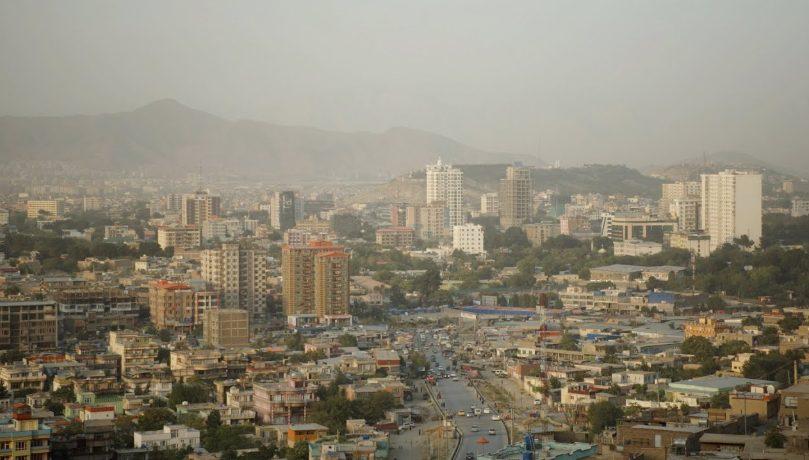In August 2021, the world watched as Afghanistan fell into the hands of the Taliban, marking a somber moment in history. The images of desperate Afghans clinging to departing planes and the swift collapse of the Afghan government raised a crucial question: Why has the world seemingly abandoned Afghanistan? This article will delve into the complex factors that have contributed to this situation, from the legacy of foreign intervention to geopolitical interests, humanitarian concerns, and the evolving global landscape.
The Legacy of Foreign Intervention
One of the key factors behind the world’s abandonment of Afghanistan is the legacy of foreign intervention. Afghanistan has long been a battleground for competing world powers, from the British Empire in the 19th century to the Soviet Union in the 20th century. The most recent chapter of foreign involvement began in the early 2000s, when the United States, supported by a coalition of nations, launched the War on Terror in response to the September 11 attacks.
Over the course of two decades, the U.S. and its allies invested vast resources, both in terms of military power and financial aid, in an attempt to stabilize Afghanistan and build a democratic state. However, the results were far from ideal. Corruption remained rampant, and the Afghan government struggled to establish authority beyond urban centers. This led to growing disillusionment and frustration among the international community.
The Evolving Geopolitical Landscape
Another significant factor contributing to Afghanistan’s abandonment is the evolving geopolitical landscape. As the U.S. and its allies withdrew their forces, other global players stepped in to fill the power vacuum. China, Russia, and Iran are all eyeing Afghanistan with strategic interests in mind. For instance, China sees potential economic opportunities in the country, while Russia and Iran are concerned about the potential spread of extremism into Central Asia.
Moreover, the U.S. pivot towards the Indo-Pacific region and its renewed focus on competition with China have reshaped its foreign policy priorities. This shift has led to the withdrawal of troops from Afghanistan and a more hands-off approach to the region. As a result, Afghanistan has become a casualty of changing global dynamics.
Humanitarian Concerns
The humanitarian aspect of the abandonment cannot be understated. As the Taliban took control, there was an immediate concern for the rights and safety of Afghan women, religious minorities, and all those who had worked with foreign forces or NGOs. The world watched with deep concern as reports of reprisals and restrictions on basic freedoms emerged.
Despite international pledges to support Afghanistan in its transition to a more inclusive and stable government, aid has dwindled and evacuations have been fraught with challenges. The world’s focus has shifted elsewhere, leaving the Afghan people in a precarious situation. Humanitarian organizations are struggling to deliver aid effectively, and many Afghans find themselves trapped in a deteriorating security environment.
The War Weary West
After two decades of conflict, there was no clear end in sight. There was a growing sentiment in the West that the war in Afghanistan had become unsustainable. The financial cost of the conflict had reached giganatic levels, with estimates exceeding $2 trillion. More importantly, the human cost was staggering. With over 2,300 American military personnel killed and tens of thousands of Afghan civilians dead. This war weariness, coupled with a desire to refocus on domestic issues, played a significant role in the decision to withdraw.
Public opinion in Western nations has also shifted over the years, with many citizens questioning the purpose and efficacy of the war. The withdrawal from Afghanistan was seen by some as a necessary step to redirect resources and attention towards pressing issues.
The Elusive Quest for a Unified Afghanistan
The absence of a united and coherent Afghan government also played a role in the world’s abandonment of the country. Afghanistan’s political landscape has been marred by divisions, infighting, and corruption. The unity government formed in the aftermath of disputed elections only served to exacerbate these problems. The inability of Afghan leaders to come together and govern effectively left the country in a state of perpetual instability.
The U.S.-Taliban agreement in February 2020 further complicated matters. The deal stipulated the release of thousands of Taliban prisoners, which fueled the group’s resurgence. The Afghan government was conspicuously absent from these negotiations, leaving many Afghans feeling abandoned by their own leaders and the international community.
What’s Next for Afghanistan?
With the world’s abandonment of Afghanistan, the future of the country remains highly uncertain. The Taliban have returned to power, promising a more moderate rule than during their previous regime in the 1990s. However, there are concerns about whether they will truly uphold these commitments and what their rule will mean for the rights and freedoms of the Afghan people.
The international community’s approach to Afghanistan is also in flux. While countries like China and Russia may seek to engage with the Taliban government, Western nations are grappling with the dilemma of recognizing a regime with a history of oppression and human rights abuses. The question of whether to provide humanitarian aid directly to the Afghan government, risk misuse, or find alternative channels for assistance remains a contentious one.
The world’s abandonment of Afghanistan is a complex issue. It is rooted in decades of foreign intervention, shifting global priorities, and domestic public sentiment. The reasons for the withdrawal are multifaceted. The impact on the Afghan people and the stability of the region is undeniable. As the international community grapples with how to engage with the Taliban government and support the Afghan people, the legacy of Afghanistan’s abandonment will continue to shape the country’s uncertain future. The world may have left Afghanistan, but the challenges and consequences of that decision are far from over.


